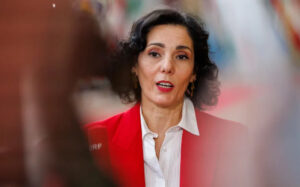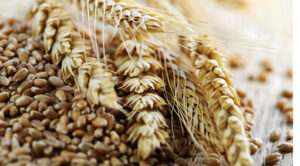
To increase humanitarian aid amid Russia’s war of aggression this winter, the European Union will provide €140 million to Ukraine and a further €8 million to Moldova.
The European Union has announced a new humanitarian aid package
for Ukraine and Moldova. Of this amount, 140 million euros are earmarked for vital emergency aid in Ukraine, including food, shelter, clean water and health care.
This is to be provided in particular to vulnerable groups in the war-torn regions of eastern and southern Ukraine. A further 8 million euros will be allocated to projects in Moldova to support Ukrainian refugees and local communities. The aid is intended to help people survive the “hard winter” in the Russian war of aggression, as Commission President Ursula von der Leyen wrote on X.
Hadja Lahbib, European Commissioner for Resilience, Humanitarian Aid and Crisis Management, and Gender Equality, visited Ukraine to discuss the distribution of EU aid and to step up efforts. “With €148 million in new humanitarian aid for Ukraine, we are providing life-saving support for people and helping to rebuild communities,” Lahbib wrote on X. ”In its hour of need, the EU stands resolutely by the side of the people of Ukraine.”

The current gas transit deal between Russia and Ukraine expires at the end of 2024, with Vladimir Putin having already said there was no time left to renew the contract. Will eastern EU members be hit the hardest?
Currently, Russian gas is still flowing through Ukraine’s pipeline network to the European Union (EU), generating revenue for Kremlin leader Vladimir Putin and funding his war against Ukraine. The Russian has claimed without Russian gas the bloc won’t be able to meet its energy needs.
For Ukraine, by contrast, the gas transit deal has always meant first and foremost filling Putin’s war chest, even though some of the revenue Russia gains from its exports via Ukraine stay in Kyiv as transit fees.
Now, as the year 2024 ends, Ukraine will not renew the gas transit agreement with Russia, as announced by President Volodymyr Zelenskyy on December 19 in Brussels. Ukraine will no longer allow Moscow to “earn additional billions” while continuing its aggression against the country.
Russian President Putin also confirmed the contract’s termination, telling reporters in a televised briefing on December 26 that a new contract was “impossible to conclude in 3-4 days.”
Putin laid the blame firmly on Ukraine for refusing to extend the agreement.
The end of the agreement, however, raises questions about gas supply in landlocked eastern EU countries, which cannot import liquefied natural gas (LNG) by sea. Austria, Hungary, and Slovakia still rely on Russian gas via Ukraine which is why the governments there are eager to continue purchasing Russian gas.
Before the Ukraine war, Russia was the world’s largest exporter of natural and Europe was Moscow’s most important market. European governments prioritized access to cheap energy over concerns about doing business with Putin.
The mutually beneficial relationship began more than 50 years ago, when the former Soviet Union needed funds and equipment to develop its Siberian gas fields. At the time, the western part of then still divided Germany sought affordable energy for its growing economy, and signed the so-called pipes-for-gas deal with Moscow, under which West German manufacturers supplied thousands of kilometers of pipes to transport Russian gas to Western Europe.
This energy relationship persists, as European importers are often locked into long-term contracts that are difficult to exit.
According to the Brussels-based think tank Bruegel
, EU fossil fuel imports from Russia amounted to about $1 billion (€958 million) per month at the end of 2023, down from $16 billion per month in early 2022. In 2023, Russia accounted for 15% of the EU’s total gas imports, trailing Norway (30%) and the US (19%), but ahead of North African countries (14%). Much of this Russian gas flows through pipelines via Ukraine and Turkey.
Major consumers include Austria, Slovakia, and Hungary. Additionally, countries like Spain, France, Belgium, and the Netherlands still import Russian LNG by tanker, some of which mixes with other gas sources in Europe’s pipeline network. As a result, it may even reach Germany, despite its efforts to forgo Russian gas.
Following Russia’s invasion of Ukraine in 2022, gas prices surged dramatically — at times by more than 20 times — forcing some European factories to cut production and many small businesses to close. Prices have since dropped but remain above pre-crisis levels, making energy-intensive industries, particularly in Germany, less competitive.
European consumers are also suffering from high energy prices, prompting many to reduce consumption amid a severe cost of living crisis. The additional expenses are a significant burden: Nearly 11% of EU citizens struggled to adequately heat their homes in 2023, according to the EU Commission.
The termination of the Ukraine-Russia agreement is already factored into European gas market forecasts, according to an EU Commission analysis reported about by Bloomberg in mid-December.
The EU is confident in its ability to secure alternative supplies.
“With more than 500 billion cubic meters of LNG produced each year globally, the replacement of around 14 billion cubic meters of Russian gas transiting via Ukraine should have a marginal impact on EU natural gas prices,” Bloomberg cites from the commission’s document, which is not yet public. “It can be considered that the end of the transit agreement has been internalized in the winter gas prices.”
The EU has long argued that member states still importing Russian gas via the Ukraine route — particularly Austria and Slovakia — could manage without these deliveries. Therefore, the EU commission said it would not enter negotiations to keep the route open.
According to the Commission, member states have been able to reduce their gas consumption by 18% since August 2022 compared to the five-year average. Moreover, the United States is expected to create new LNG capacities over the next two years, and these supplies could help the EU address potential disruptions.
“The most realistic scenario is that no Russian gas will flow through Ukraine anymore,” the EU commission said, adding the bloc was “well-prepared” for this outcome.
Despite EU assurances, Hungary and Slovakia remain anxious about their gas supplies and their ongoing close ties to Russia. Hungarian Prime Minister Viktor Orban, for example, is seeking ways to maintain gas deliveries through Ukraine, even though the country’s current imports largely rely on the TurkStream pipeline.
Orban has floated unconventional ideas, such as purchasing Russian gas before it crosses into Ukraine. “We are now trying the trick … that what if the gas, by the time it enters the territory of Ukraine, would no longer be Russian but would be already in the ownership of the buyers,” Orban told a briefing, according to the Reuters news agency. “So the gas that enters Ukraine would no longer be Russian gas but it would be Hungarian gas.”
Hungarian Prime Minister Orban is a staunch supporter of Russian gas and wants flows via Ukraine to continueImage: Denes Erdos/AP/picture alliance
Slovakia has taken a more confrontational approach, threatening countermeasures against Ukraine. Prime Minister Robert Fico suggested halting emergency electricity supplies to Ukraine after January 1 if no agreement is reached. “If necessary, we will stop the electricity shipments that Ukraine needs during outages,” Fico said in a Facebook video.
In respons to the threat, Ukrainian President Volodymyr Zelenskyy accused Fico of acting under Russian orders, stating on social media platform X that it appears Putin directed him to “open a second energy front against Ukraine.”
Fico remains one of the EU’s strongest opponents of military aid to Ukraine. During a surprise December visit to Moscow, Fico claimed Putin reaffirmed Russia’s willingness to continue supplying gas to Slovakia.

About 2 million artillery shells will be produced in the EU in 2025, the newly appointed European Commissioner for Defense and Space, Andrius Kubilius, told Hromadske.
Answering a question about whether Europe has enough production capacity to increase military aid to Ukraine, the official noted that only 20-25% of weapons are produced in the EU, and the rest are bought abroad. According to Kubilius, increasing arms production in the EU requires orders from European governments, which are lacking, and without long-term contracts with arms manufacturers, Europe should not be expected to produce more weapons and ammunition for Ukraine in the coming years.
“Money from the EU budget cannot be used to purchase weapons for Ukraine. There are a number of restrictions on investment in the defense industry outside the EU. However, money from the European Peace Fund or frozen Russian assets can be used to purchase weapons,” the European Commissioner said.
At the same time, Kubilius explains, next year Ukraine will receive about EUR 30 billion from the EU and will decide how much of this amount to use for defense purposes. The EU is currently implementing a new mechanism to integrate the Ukrainian military-industrial complex into the European defense industry.
The final communiqué of the EU summit held on December 18-19 emphasizes that the European Council “plans to intensify its efforts to further support and develop Ukraine’s defense industry and deepen its cooperation with the EU defense industry.”

In 2023, the European Union imported 339.8 thousand tons of spices from non-member countries, according to the EU Statistical Office (Eurostat).
Over the past ten years, imports have increased by 44%.
Last year, China was the main supplier of spices, accounting for 39% of the total supply to the European Union, the report said.
The most popular spice was ginger (114 thousand tons), followed by paprika (110.6 thousand tons) and pepper (50.3 thousand tons). China was the main country of supply for ginger (43%) and paprika (73%), while pepper was mostly purchased from Vietnam (63%).
Turmeric ranked fourth (16 thousand tons), with the bulk of imports coming from India (79%). Cinnamon was in fifth place (13.3 thousand tons), with Vietnam accounting for more than a third of the supply (37%).
Over the past ten years, imports of turmeric and ginger have increased most significantly – by 2.4 times and 2.1 times. At the same time, purchases of pepper abroad decreased by 11%.

During negotiations with representatives of the European Union in Ukraine, the Verkhovna Rada Committee on Agrarian and Land Policy discussed the prospects of receiving grants and financing for the Ukrainian agricultural sector, as well as the introduction of Common Agricultural Practice (CAP) after joining the European Union, MP Serhiy Labaziuk (For the Future party) said in a telegram channel.
Christian Ben Hell, Head of the Agriculture, Fisheries, Forestry and Food Safety Sector of the EU Delegation to Ukraine, informed that Ukrainian farmers have already received grants worth EUR 1.5 billion.
“My colleagues suggest not to tax pomegranates for farmers in any way, as this is actually humanitarian aid. The EU considers it incorrect to take part of it into the budget,” said the MP.
The participants of the meeting stated that the EU requirements for agriculture have been met by more than 71%. In the course of further adaptation of the European legislation, the MPs emphasized the need to introduce changes taking into account the interests of Ukrainian producers.
“Ukrainian farmers want to work with the European market, but this figure will be about 20%. The rest will be transit or export to other countries,” said Labaziuk.
The MPs also raised the issue of the blockade on the Ukrainian-Polish border.
“The committee returned to the issue of parity – whether we will have any problems or manipulations with the export of our products if we fulfill the EU requirements in good faith,” the parliamentarian summarized.
The meeting heard reports from Deputy Minister of Economy and Trade Representative Taras Kachka and Deputy Minister of Agrarian Policy and Food Oksana Osmachko.

On the European market, prices for wheat and corn fell on Monday and Tuesday, while prices for rapeseed and soybeans may remain lower due to the escalation of hostilities in Ukraine last week, German publication Agrarheute.com reported.
Analysts say that the wheat market, which was supported by the escalation of the situation in Ukraine for most of last week, is under pressure due to the lack of new elements, the publication writes.
German experts attribute the decline in wheat and corn prices to the fall of the euro against the dollar: last Friday, its rate was recorded at $1.0333, a two-year low.
“The fall in the euro actually supports European wheat exports (and wheat prices) and slows down high imports of corn and rapeseed,” the resource noted.
Meanwhile, according to most analysts, the dominance of Black Sea wheat remains a factor that puts pressure on the European market, especially given the recent drop in Russian wheat prices. At the same time, wheat from the southern hemisphere is becoming increasingly important on the market.
Agrarheute referred to the data of the European Commission, according to which the European Union has already imported 3.5 mln tonnes of soft wheat since the beginning of 2024-2025 marketing year as of November 17, of which 2.5 mln tonnes, or approximately 70%, came from Ukraine, and the rest – from Canada, Moldova, the USA and Serbia. The main recipients were Spain (almost 2 million tons) and Italy (530 thousand tons).
“Starting December 1, Ukraine will introduce a system of minimum export prices for agricultural products, including wheat, corn and barley. Minimum prices will be calculated by the Ministry of Agrarian Policy on a monthly basis, and exports below these prices will be prohibited,” the publication noted.
Experts emphasized the difficulty of forecasting the situation on the global agricultural market due to the introduction of the mechanism of setting minimum export prices for agricultural products by Ukraine and its impact on the structure of the harvest and Ukrainian exports.
“We are quickly approaching the holiday season, which means there is less fundamental data to trade on the grain markets than we usually get in the rest of the year,” the publication quoted Kaden Sweeney, hedge strategist and market analyst at AgMarket.net, as saying.
Since the December USDA report is always similar to the November report, we probably won’t have any new supply and demand data until January 10, Agrarheute concluded.